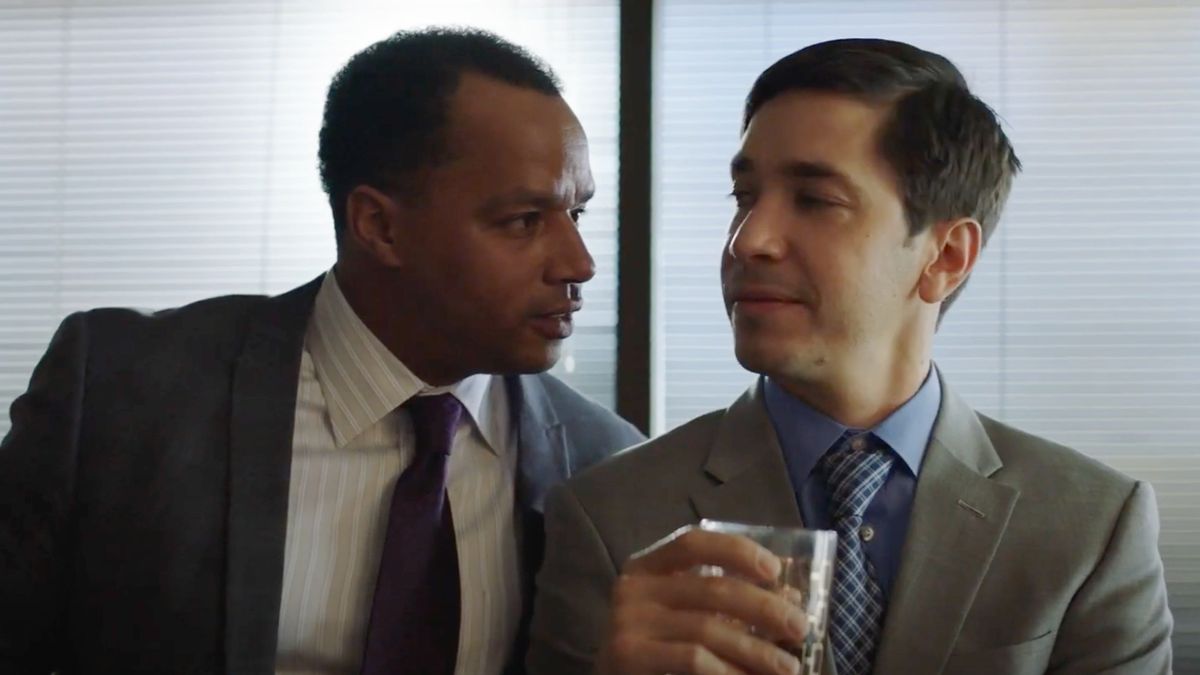EIFF 08: The Wave Review

Rainer Wenger is the typical hipster teacher, all punky T-shirts and informal class manner. He loves the attention and adoration of his class perhaps more than teaching itself. When he ends up with autocrasy as his subject for class project week, the self-proclaimed anarchists objections fall on deaf ears. Resigning himself to his lot he throws himself in to the project anyway, proposing to teach his class about autocratic society by getting them to simulate it. Wenger’s naivity is that his desire for the adulation of the class and the spell he holds over many of them is the very thing that makes him the perfect candidate and them the perfect participants for all the wrong reasons and while on the surface it seems that the idea is full of benefits; the shy kids are finally being accepted and old rivals are learning to work together, the insidious nature of how that is occurring slips by all but a resolute few.
The Wave makes for unsettling viewing especially if you go in knowing that this is based on a true story. We all to some degree like to live in a smug cosey world where we believe that the horrors of fascism are far behind us, but as with anything in the modern world, it isn’t as simple as a case of whether something is right or wrong. We live in a world where politicians and ad men can, with the right words and images, convince the public at large to sign away their rights and freedoms on a whim or to support archaic bigotries in the name of what is “right”. Is it really so hard to believe in this increasingly paranoid and surveillance-heavy society that we couldn’t be sold a fascist regime based on all it’s so-called benefits while never realising till it’s too late, the far-too-costly negatives? It is this idea which makes The Wave, despite it’s flaws, such compelling viewing.
Director Dennis Gansel racks up the tension from beginning to end as you watch the pupils begin with a debate on how Nazism could never recur in the modern age. Yet within ten minutes they are traveling down the road they just discussed, seduced by the promises, and to a degree the delivery, of the benefits of equality and fairness and order. As the group begins to embrace the project they end up creating everything from a uniform to a myspace page. With some embracing the concept more than others, their fervor for the project infects the other pupils outside the class and all you can do is sit back and watch in horror as these normal kids quickly become the very definition of what they claimed couldn’t be repeated after the war; full of love for anyone who will conform and hate, discrimination and violence towards anyone who will not.
If there is one major criticism to be leveled at The Wave it’s that the compressed time frame of the movie makes the transformation of the kids from average teenagers to trouble-maker a little unbelievable at times. While possibly used to hammer the point home on their transformation and feature a more energetic set-piece, it seems a little off that a mixed group of students from nerds and outcasts to jocks and cool guys go from being a regular class to 24 hours later a single operating group who go out and vandalise most of their city with their newly formed logo. Thankfully blips like this, while jarring when they occur, are rare. The Wave works much better when we are watching the quieter power struggle between those students who realize what is going wrong and have to try and convince Rainer to stop the project and the snowballing cause and effect of the increasingly powerful Wave movement itself.
The Wave is a timely reminder that it doesn’t take much to lose sight of what is important and be deluded in to believing that an autocratic state, even just a little bit of one is a better, safer place to live. Much like Communism, it is a fine idea on paper, but the implementation rarely amounts to more than another way of one group trying to control another through abuse of power.
CINEMABLEND NEWSLETTER
Your Daily Blend of Entertainment News
Most Popular






